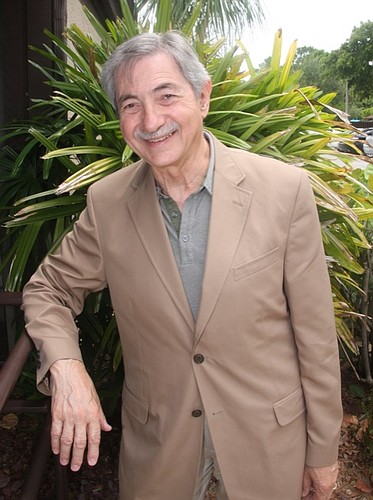- July 26, 2024
-
-
Loading

Loading

It's no surprise that many technology companies prefer to locate their offices near research universities. Just look at Boston or Silicon Valley.
With that idea in mind, Bonita Springs resident John Backe, through a nonprofit foundation he established, gave Florida Gulf Coast University $1 million in October 2009 to endow the Backe Chair in Renewable Energy.
Backe, the former president of CBS, is a partner with developer Rich Galvano in a 241-acre tract north of the university, which is permitted for 1.2 million square feet of commercial space. “Always in the back of my mind is if we got the right guy, he would be the spark plug,” says Backe.
The “right guy” is Joseph Simmons, who was recently appointed to the newly established academic post at FGCU. He's currently the head of the Arizona Research Institute for Solar Energy at the University of Arizona, a similar effort that has attracted utilities and technology startups in that state.
“Any university worth its salt has a research park tied to it,” says Galvano, whose brother is State Rep. Bill Galvano, R-Bradenton.
Initially, the plan was to have FGCU build a $12.5 million incubator building on Galvano and Backe's Innovation Hub research park. But Gov. Rick Scott vetoed the initial $5 million funding, part of a broader veto of higher-education projects that would have boosted the state's indebtedness.
Backe and Galvano acquired the land for $21 million in 2008 after having had it under contract for about four years of permitting. The property was one of four finalists to be the site of the Boston Red Sox spring-training stadium, but lost out to a parcel on Daniels Parkway.
“It's been a bit of a struggle because of the economy,” says Galvano, who plans to break ground on the first two office buildings there in the fall. “But things are starting to pick up again. We've got companies we're talking to that are interested in being there.”
The challenge with trying to attract renewable-energy companies is that there's a lack of venture capital in Florida and the Gulf Coast. “The thing you run into is that many renewable-energy companies all need financing when they come in,” says Backe.
In addition, Florida doesn't have an established energy policy. “That tends to turn off a lot of people who talk to us,” Backe says.
By contrast, Simmons says utility customers in Arizona pay a tax to promote renewable energy research, which gives utilities an incentive to try different technologies. For example, Simmons says he's been working with utilities in Arizona to model renewable energy's return on investment and seek new technologies to store power that's gathered by solar panels for peak consumption times.
“It would be helpful for the state to support this,” says Simmons. “The university can provide leadership and knowledge.”
Currently, Simmons says solar power is cost-effective only for water heating. But he says that by 2014 the technology for capturing solar energy and storing will be much less expensive than it is today, broadening its use and appeal.
“It'll be such a bargain you can't ignore it,” he says.